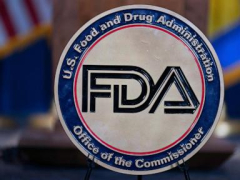Federal regulators have detected possible radioactive contamination in a second food product sent to the U.S. from Indonesia, even as recalls of potentially tainted shrimp continue to grow. The discovery adds to questions about the source of the unusual problem.
U.S. Food and Drug Administration officials last week blocked import of all spices from PT Natural Java Spice of Indonesia after federal inspectors detected cesium 137 in a shipment of cloves sent to California.
That follows the import alert imposed in August on the company PT Bahari Makmuri Sejati, or BMS foods, which sends millions of pounds of shrimp to the U.S. each year.
Here’s what you need to know about potential cesium 137 contamination:
Cesium 137 is a radioactive isotope created as a byproduct of nuclear reactions, including nuclear bombs, testing, reactor operations and accidents. It’s widespread around the world, with trace amounts found in the environment, including soil, food and air.
U.S. Customs and Border Protection officials detected cesium 137 in shipping containers of shrimp sent by PT Bahari Makmur Sejati to several U.S. ports. CBP officials flagged the potential contamination to the FDA, which tested samples of the shrimp and detected cesium 137 in one sample of breaded shrimp.
The company has sent about 84 million pounds (38 million kilograms) of shrimp to U.S. ports this year, according to data from Import Genius, a trade data analysis company. It supplies about 6% of foreign shrimp imported in the U.S.
This month, FDA officials detected cesium 137 in one sample of cloves exported by PT Natural Java Spice, which sends spices to the U.S. and other countries. Records show the company sent about 440,000 pounds ( 200,000 kilograms) of cloves to the U.S. this year.
No food that triggered alerts or tested positive has been released for sale in the U.S., FDA officials emphasized.
But hundreds of thousands of packages of imported frozen shrimp sold at Kroger and other grocery stores across the U.S. have been recalled because they may have been manufactured under conditions that allowed them to be contaminated, the agency said.
Although the risk appears to be small, the foods could pose a “potential health concern” for people exposed to low levels of cesium 137 over time.
The levels of contamination detect





